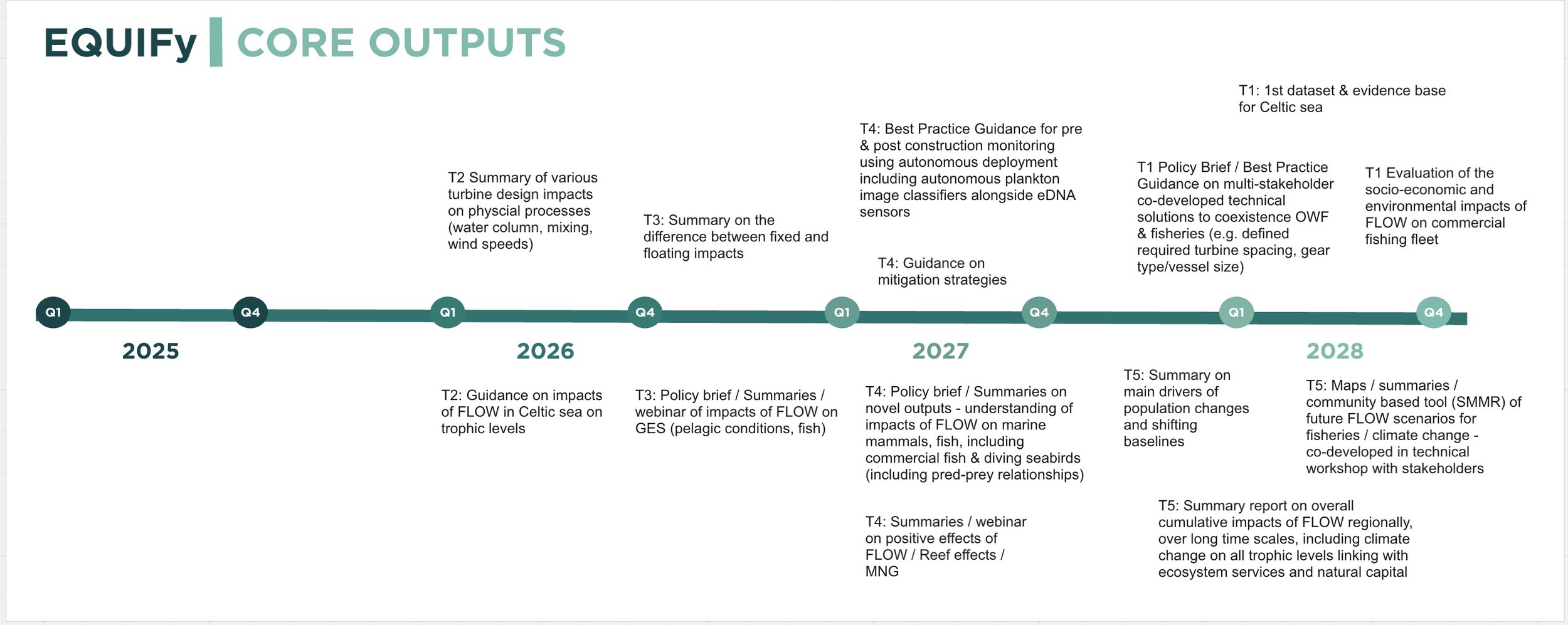
EQUIFy
Establishing a Framework for Quantifiable Evidence and Impact of Ecosystem Change Throughout the Lifecycle of UK Floating Offshore Wind Farms.
Lead Principal Investigator: Matthew Palmer, Plymouth Marine Laboratory
Overview
Maximising the future benefits from floating offshore wind (FLOW) requires rapid delivery of our best possible understanding of marine ecosystem sensitivity to the multitude of pressures that FLOW will cause, and delivery of tools that translate such complex information to support and accelerate decision making.
EQUIFy aims to co-deliver a transferable, monitoring and evidence framework that quantifies the ecological impacts from potential future FLOW farms. It will assess the compound and cumulative ecological, social and economic effects of FLOW at a range of scales using historical and contemporary data to underpin predictions of likely future pressures including changing marine use and within the context of a changing climate.
Image credit: [Insert here]
To assess the local-scale impact of FLOW mixing processes and evaluate the change within local primary productivity, phytoplankton community dynamics and the abundance and behaviour of fish, birds, and marine mammals.
Objectives
To evaluate the regional-scale effects of FLOW on oceanic conditions and cascading effects on higher trophic levels and overall ecosystem functions, considering the long-term effects of cumulative impacts.
To understand how the large scale and long term expansion of FLOW will be modified by changes in the use of marine areas and climate change and to assess the potential constraints on managing these impacts within the pace and scale of UK energy infrastructure developments.

The EQUIFy framework will inform future FLOW development by guiding optimal design and investment decisions, maximising the benefits of FLOW while minimising potential for detrimental ecosystem impacts. Decision support tools will translate data into information to guide key policy areas, marine planning and to help simplify and thus accelerate the licensing and consenting process, supporting the delivery of the UK’s energy and decarbonisation ambitions in a manner that optimises nature recovery, marine net gain and coexistence with other users.
Impact
EQUIFy Team
Plymouth Marine Laboratory
University of Plymouth
University of Oxford
University of the Highlands and Islands
University of Aberdeen
National Oceanography Centre
Centre for Environment, Fisheries and Aquaculture Science
EQUIFy Partners
Met Office
Celtic Sea Power
Simply Blue Group
TwinHub Ltd
Flotation Energy
Natural England
University of Liverpool
Marine Directorate
Sonardyne International Ltd






